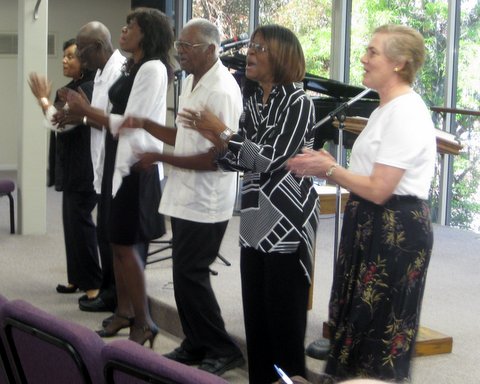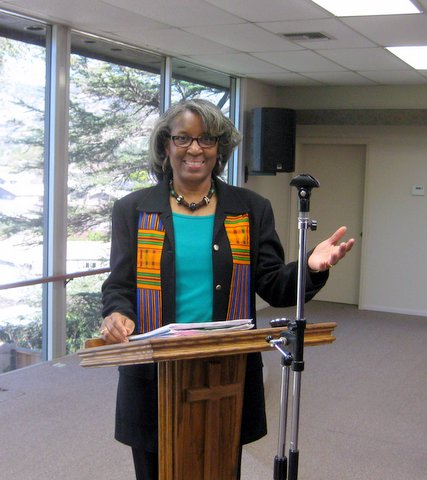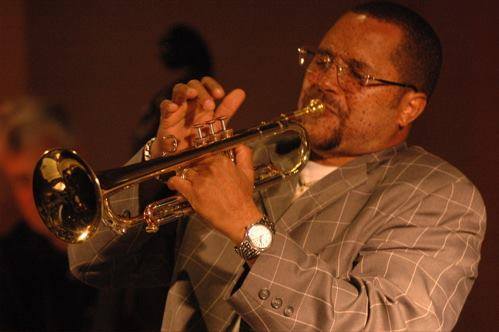Here from Neil Earle is a report on some of the celebrations of Black History Month in GCI congregations in the United States.
All across our fellowship and across this vast land, GCI congregations showed respect and appreciation for Black History Month during February. Doing so has particular relevance in GCI, which has been mixed-race almost from its beginnings. Some of our U.S. churches have former Tuskegee airmen in their midst, and members who walked in the Montgomery Bus Boycott of 1955-56, which helped ignite the modern civil rights movement.
GCI’s congregation in Bellflower, California, had a special slide show in February highlighting significant contributions by African-Americans that have bettered the lives of all people in this country and worldwide. Lead Pastor Larry Dietrich commented:
Black History Month was established to give due credit and recognition to African-Americans. We wanted to make sure that all our members were made aware of their contributions, whether they are inventions, progress or break-throughs in fields like medicine, agriculture and many others. We also honored those patriotic individuals in our past or in our midst whose lives and efforts stand out from the crowd.
 GCI’s Glendora, California, congregation held its 20th celebration of Black History Month. Lead Pastor Neil Earle commented:
GCI’s Glendora, California, congregation held its 20th celebration of Black History Month. Lead Pastor Neil Earle commented:
We usually start with a Call to Worship that could be a Negro spiritual or something reflective of the vast African-American cultural contribution. We make sure the hymns reflect that as well and there are usually readings offered from significant members of the Black community such as Frederick Douglas, Martin Luther King, Jr. or Dr. Carter Woodson who started Black History back in the 1920s.
 This year’s special guest speaker at the Glendora celebration was Celestine Olive (pictured at right), assistant pastor of GCI’s Eagle Rock, California, congregation. As an African-American woman growing up in Texas, part of a family of 12 children, Celestine explained how she quietly but steadily broke through glass ceilings of race and gender. “I discovered that God had his own personal plan for me,” said Celestine, “and that being in his hands were the only hands that mattered.”
This year’s special guest speaker at the Glendora celebration was Celestine Olive (pictured at right), assistant pastor of GCI’s Eagle Rock, California, congregation. As an African-American woman growing up in Texas, part of a family of 12 children, Celestine explained how she quietly but steadily broke through glass ceilings of race and gender. “I discovered that God had his own personal plan for me,” said Celestine, “and that being in his hands were the only hands that mattered.”
In Cincinnati, Ohio, George Hart, the lead pastor of GCI’s Christ Community Church (CCC) leads a chapter of the Office of Reconciliation and Mediation (ORM), a parachurch ministry associated with GCI. CCC leader Sandra Hamilton is responsible for Black History Month celebrations. The congregation hosted three events this year—inviting in a group called Ebony Strings for a mini-concert of black spirituals; providing an update given during church life featuring African-American women who share their culture through song, dance and sign language; and hosting a Gospel Jazz band (featuring Michael Wade, pictured below) during their annual “Soul Food Potluck” after church.
 “Cincinnati is a good spot to celebrate Black History,” George Hart reminds his congregation and visitors. Built on the Ohio River, the city was a transit point for the Underground Railway where abolitionists ferried runaway slaves to the Northern states. “This rich background comes to life every February and our events are well-attended,” says Pastor Hart.
“Cincinnati is a good spot to celebrate Black History,” George Hart reminds his congregation and visitors. Built on the Ohio River, the city was a transit point for the Underground Railway where abolitionists ferried runaway slaves to the Northern states. “This rich background comes to life every February and our events are well-attended,” says Pastor Hart.
“Black History Month has many benefits,” comments Neil Earle, a history teacher for much of his life. “It reminds us all of a time when Christian ministers such as the Reverend Martin Luther King, Jr., Reverend Ralph Abernathy, Medgar Evars and Andrew Young preached and taught and prodded the country to make real change, often at the cost of their lives.” George Hart adds: “I feel as a pastor it’s important to foster learning about each other to ease the fear and suspicion.” Commented one visitor in Glendora: “The black story is the American story, is the Christian story, and that is something to celebrate.”



Very well done! Reminding people around the nation and the world of the importance of highlighting this often “unknown history” I think is critical. We must not let it die.
Thank you so much for this overview. As members of GCI for many, many years, we were always pleased to share this rich and meaningful history with our fellow brothers and sisters. We greatly missed this for the past 3 years as we have now closed the Church here in Kalamazoo. We have “dual” membership now with a local Church. Many adjustments but GOD is still proving that We are ONE body. This year, we celebrated Black History with the Seniors of the congregation being the ones “highlighted.” That was a wonderful and blessed event, the children and young folks were pleased to learn the history of the Senior members. My husband brother celebrated the event in his home for the family for 10 years. When he died, his children decided to keep the legacy alive and it is now family and a community wide celebration with all the wonderful things in our history just waiting to be told and shared. As Mr. May stated, we can’t let it die. If we are to truly love one another, we must have the godly respect. Our society doesn’t do much to foster good images. But we have the HOLY SPIRIT to lead and guide us. Love to all of you and GOD bless and keep you.
Thank you both–recent events show some issues never go away or at least not for long so its good for any church to have mechanisms in place to be pro-active in this matter–on to Cinco de Mayo–NE